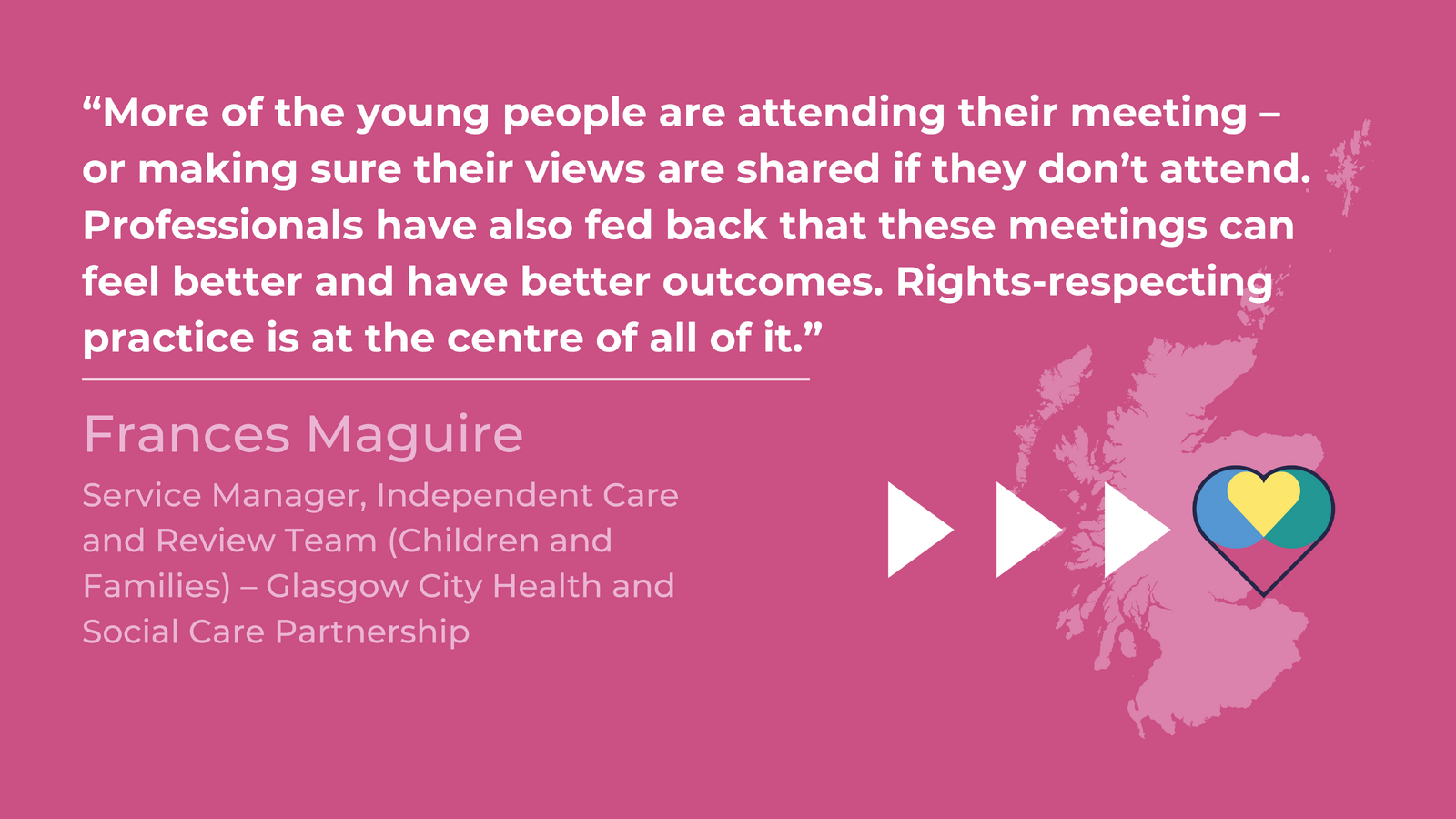Creating Emotionally Safe Environments: Frances' Learning Story

“Our new model in Glasgow has definitely given us a template for what feels like an emotionally-safe environment for children,” says Independent Reviewing Officer manager, Frances. “It feels like a system in which we listen to the young people first and foremost, and they influence the review meeting in every way. We ask them how they want to do that multi-agency meeting, what they want in it— we talk about the agenda, and whether there’s anything that might be difficult for them. The process is a negotiation.”
“Someone who’s not totally familiar with that pre-meeting process might see it as fluffy and just trying to be nice. But it’s not that. Among other things, it builds stronger relationships and trust.”
The My Meeting/My Plan model
Glasgow switched to their new My Meeting/My Plan model in 2020 as the promise was made. They created a new team of Independent Reviewing Officers (IROs) to review care plans for children living in residential houses and coming into care, taking that on in a more relational, child and family-centred way.
Changing the review model was a direct response to the promise, Frances says, and it’s a tangible example of how the different strands can come together. Today, there are pre, during and after-review stages. Pre-review, IROs agree with the young person how they want to proceed: where they want to meet, when it will be, who will attend, as well as what’s working well, what might need to change, and what they might need support with. Post-review, things have changed too. The team completes what’s called a ‘My Plan’, written direct to the child, using age-appropriate, trauma-informed language, with no jargon and minimal use of abbreviations. A trusted adult will also discuss the plan with the young person to make sure they understand what it means for them and what should happen next.
“My Plans have been really positive,” Frances says. “Among other things, they have encouraged us to think about language from a child’s perspective and adapt how we all talk and write about children and their families.”
“Feedback shows the new model, as a whole, allows children to build up their trust in the people caring for them, and encourages power to be shared between the young people, their families, social workers and others professionals – particularly when there are difficult decisions to be made. It’s not about giving children everything they want. But this shapes their future. Trust is vital, as is helping them to understand why decisions have been made, and allowing critical questions to be asked of the adults caring for them.”
“We know the model is working”
“We know the model is working,” says Frances, “because the young people and their families have told us it is. More of the young people are attending their meeting – or making sure their views are shared if they don’t attend. Professionals have also fed back that these meetings can feel better and have better outcomes. Rights-respecting practice is at the centre of all of it.”
With every process of change though, there are challenges.
“We always need to try to work within the context of organisations and help people along where we can. We’re all at different stages of system change. Partners agencies, for instance, are very focused on their area of expertise. So, to go straight in and say, ‘We need to think about this child first, their rights and how they feel’ is fine, but we have to consider that organisations and individuals are all moving at a different pace.”
“Working with people is fundamental to system change,” Frances adds. “It’s a major shift in practice, and there are a lot of people to consider. So, there’s coaching and mentoring, and it’ll take time to be fully embedded.”
“That said, when you see how the model has shifted practice and helped us to re-imagine how we care for our children and young people, it’s really inspiring. That helps me to work hard to keep the promise in Glasgow.”
